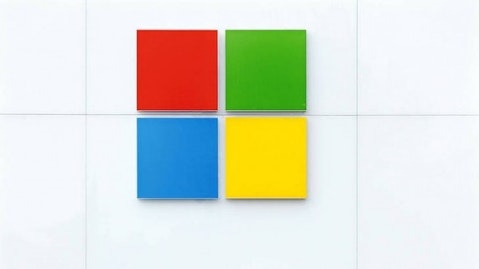By now, the dire fate of the PC industry is old news. Ever since the arrival of Apple Inc. (NASDAQ:AAPL)’s iPad in 2010, the Wintel machines which had dominated the past three decades of personal computing have lost their competitive edge, surrendering market share quarter after quarter to tablet manufacturers. Unfortunately for shareholders of the “old gods” of the Wintel empire –Microsoft Corporation (NASDAQ:MSFT), Hewlett-Packard Company (NYSE:HPQ), Dell Inc. (NASDAQ:DELL) and Intel Corporation (NASDAQ:INTC) – that decline doesn’t look to reaching a bottom anytime soon.
Preliminary numbers from research firms IDC and Gartner for the second quarter of 2013 show that global PC shipments fell 11% year-on-year, dragged down by sluggish demand in China and Europe. Despite these bleak signs, I don’t believe that the PC industry will die and be completely displaced by tablets, phablets and hybrid devices. Instead, I believe that the PC market will survive, but the old gods could die.
The ongoing siege of Mount Olympus
To see how bleak the future looks for the personal computer industry, let’s take a look at IDC’s preliminary figures for global PC shipments during the second quarter.
Taiwanese companies Acer and Asus fared the worst out of the top five PC manufacturers, as a result of their commitment to high-end Wintel laptops. Meanwhile, Hewlett-Packard Company (NYSE:HPQ) continued to decline as demand for its hybrid devices remained weak. Even mighty Lenovo, which recentlyreclaimed the top spot as the world’s largest PC manufacturer by shipments, reported a slight year-on-year decline.
In America, the numbers were considerably better for Lenovo and Dell Inc. (NASDAQ:DELL), which reported 19.6% and 5.8% growth, respectively. However, Hewlett-Packard Company (NYSE:HPQ)’s domestic shipments fell 4.1% and Acer’s plunged 19.5%.
Following Microsoft straight off a cliff
Microsoft Corporation (NASDAQ:MSFT)’s Windows 8 is rightfully blamed for exacerbating the rapid decline of the PC industry. The new operating system’s steep learning curve and its odd hybrid mix of mobile and desktop features has made it one of Microsoft’s most unpopular operating systems to date.
Recent data from Net Applications, which accounts for all global operating system traffic, indicates that Windows 8 had a 5.1% market share in June, up from 4.27% in May. The vast majority of PC users, at 44.37%, are still using Windows 7, and 37.17% still have Windows XP installed. This stubborn refusal to upgrade to Windows 8 has forced Microsoft Corporation (NASDAQ:MSFT) to prolong support for the 12-year old XP until 2014.
This refusal to upgrade to Windows 8 killed off an entire generation of Ultrabooks, those high-end laptops from Asus, Acer, Lenovo and Samsung that were supposed to make laptops popular again. Ultrabooks, which featured low-power Intel Corporation (NASDAQ:INTC) Core processors, solid-state drives and an unibody construction, were specifically developed by Intel to challenge Apple Inc. (NASDAQ:AAPL)’s popular Macbook Air series. However, their high price tags (often exceeding $1,000) and Windows 8 operating system turned off many consumers, who bought the ironically cheaper MacBook Air ($999) and other devices instead.
The old gods just don’t understand tablets
Even though it should be a simple jump from laptops to tablets, PC manufacturers such as HP and Dell Inc. (NASDAQ:DELL) have failed to produce tablets that have appealed to the masses.
For example, Hewlett-Packard Company (NYSE:HPQ) recently released the HP Slate 7, a half-hearted $150 attempt at competing against Google Inc (NASDAQ:GOOG)’s Nexus 7 and Amazon.com, Inc. (NASDAQ:AMZN)’s Kindle Fire. On paper, it looked like what the market wanted – a 7-inch tablet powered by a dual-core 1.6 GHz ARM processor, 1GB of RAM and 8GB of internal storage, all running on Android 4.1. Unfortunately, its cheaper, lower resolution display (1024×600) meant that nothing really set it apart from the sea of cheap Chinese-made Android tablets that can easily be purchased on Amazon or eBay Inc (NASDAQ:EBAY).
Meanwhile, Microsoft Corporation (NASDAQ:MSFT)’s own effort to produce a tablet-based operating system, Windows RT, has completely fallen apart. On the surface, Windows RT looks identical to Windows 8, but specifically designed to run on ARM Holdings plc (ADR) (NASDAQ:ARMH) processors and to prolong battery life. However, Microsoft made a grievous error by making it incompatible with standard Windows applications. Windows RT can only run apps from the Windows Store, which is missing most of the traditional software that Windows users expect to have access to. Microsoft’s own attempt to promote Windows RT, the Surface RT, also failed to find an audience. IDC estimates that Windows RT devices only accounted for 0.4% of all tablets sold worldwide during the first quarter.
However, Microsoft Corporation (NASDAQ:MSFT)’s disaster indirectly benefited its long-time partner, Intel Corporation (NASDAQ:INTC). Microsoft’s preference for ARM processors in Windows RT forced Intel to develop more power-efficient chips to match ARM’s processors, which still dominate the smartphone and tablet markets. As a result, Intel scored a rare victory last month when Samsung announced that it would use Intel’s Clover Trail+ mobile chip in its high-end Galaxy Tab 10.3.
Google knows how to revive the PC industry
The one company that seems to understand the future of the PC industry is the one that helped destroy it – Google. When Google’s Chromebook was released two years ago, many critics claimed that it was doomed to the same fate as netbooks. However, NPD Group reportsthat over the past eight months, Chromebooks, which are currently produced by Acer, Samsung, Lenovo, Hewlett-Packard Company (NYSE:HPQ) and Google, have now claimed 20% to 25% of the U.S. market for laptops under $300. Newer models from Acer and Samsung are even cheaper, starting at $199.




